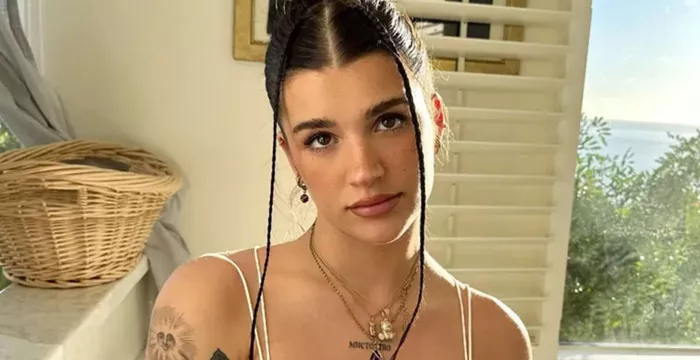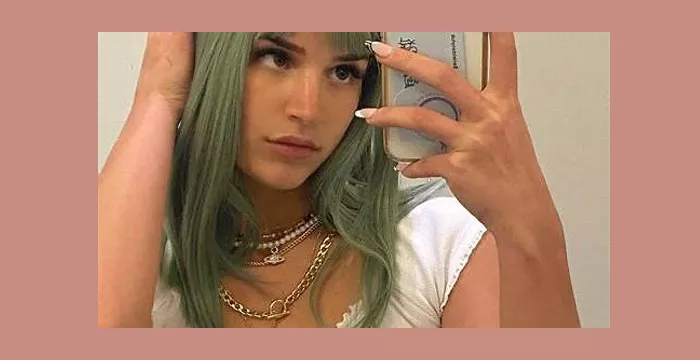
Introduction: When Fame Invites Risk
In today’s digital economy, content creators are more visible—and vulnerable—than ever. Among those navigating this high-stakes spotlight is Ari Kytsya, a rising OnlyFans star and adult content creator whose recent experiences have exposed alarming gaps in privacy, platform responsibility, and creator protection.
Her story is not just a cautionary tale; it’s a reflection of the complex ecosystem in which online fame, fan culture, and personal safety collide.
The Rise of Ari Kytsya: Identity, Persona, and Public Fascination
Ari Kytsya is widely recognized for her work in the adult creator space. She gained momentum in the early 2020s through her bold and polished OnlyFans content, collaborations, and viral interactions across platforms like TikTok and Twitter. Her visual brand and personality resonated with audiences seeking authenticity in adult media.
Kytsya stands at approximately 5 feet 5 inches (165 cm), according to public estimates. While she has maintained a consistent online presence, she keeps her real name, family background, and romantic life private, which has only fueled speculative discussions across fan forums.
Relationship Rumors and the “Ex” Obsession
Despite her efforts to separate personal and professional life, speculation around Ari Kytsya’s romantic past continues to trend online. Many followers have attempted to identify past partners or collaborators she may have dated—especially after her OnlyFans collab with Girthmasterr. However, there are no publicly confirmed details about any ex-boyfriend or ex-partner.
This obsessive interest highlights the parasitic nature of modern fandom, where audiences often feel entitled to information beyond what creators choose to share.

The Girthmasterr Collaboration: Leaks, Backlash & the “Mattress Actress” Label
In one of her most controversial collaborations to date, Ari Kytsya joined fellow adult creator Girthmasterr for a premium $60 content drop. While the release generated massive buzz, fan dissatisfaction quickly turned toxic, leading to unauthorized leaks and heated TikTok debates about consent and content quality.
Amidst the backlash, some online commenters labeled her a “mattress actress”—a dated, derogatory term used for adult performers. Kytsya did not respond directly to the insult, but the incident underscores the deep-seated stigma that still surrounds sex work, even in a platform-monetized creator economy.
Parasocial Attention and The Starbucks Video Controversy
Another bizarre chapter in Ari’s viral fame came in the form of the so-called “Starbucks video”—a clip allegedly showing Kytsya in a compromising or humorous situation at a café. Despite widespread sharing, no original, verified source of the video exists. Much of the traction appears to be clickbait-driven or the result of misidentification.
This mirrors a larger problem: AI-edited or falsely attributed videos are now weaponized against creators for clout or controversy. These instances compound the psychological toll on public-facing individuals like Kytsya, whose reputation can be reshaped by something they didn’t even create.

The Real Threat: Stalking and Forced Relocation
Perhaps most concerning is what followed the video leaks and viral attention: offline stalking. Kytsya reported being followed, watched, and even confronted by unknown individuals outside her home. As a result, she was forced to relocate for the second time.
Cases like hers demonstrate how online behavior can manifest dangerously in the real world, especially for creators in vulnerable industries. Without comprehensive safeguards, the line between fame and fear disappears quickly.
The Tools Creators Are Turning To
To survive these threats, Ari and others now rely on digital protection tools:
- Cyberscan monitors unauthorized reposts and auto-sends DMCA notices.
- Incogni and DeleteMe erase personal data from public databases.
- Blur App offers virtual credit cards and address masking.
- VaultDrop secures collaboration agreements on-chain for legal clarity.
- ZeroFox Lite flags stalker-like behavior across digital channels.
But these solutions remain expensive or out of reach for many smaller creators.
Legal Loopholes and Platform Apathy
While the UK’s Online Safety Act 2025 and India’s DPDP rules aim to address digital harassment, enforcement is inconsistent. U.S. platforms like OnlyFans continue to operate under Section 230, which absolves them of liability for user-posted content.
This leaves creators like Ari fighting a two-front war—against abusers and against indifference from the very platforms they fuel.

Family, Boundaries, and False Narratives
As her fame grows, so do rumors. Recently, social media claims emerged suggesting Ari Kytsya has a sister involved in her work. There is no evidence or public statement supporting this. Kytsya has not mentioned family in any verified forum. The internet’s demand for creator "backstories" often leads to fabricated narratives that risk doxxing or defamation.
Mental Health, Burnout, and the Creator Crisis
The compounded impact of harassment, public speculation, platform failure, and overexposure has real consequences:
- Sleep disruption due to monitoring for leaks
- Constant fear of location exposure
- Anxiety about reputation damage from AI-generated or leaked content
- Loss of creative freedom due to fear of retaliation
As Dr. Lina Foster, a digital psychologist, puts it:
“Today’s creators need more than moderation—they need a digital wellness infrastructure.”
What Fans and Platforms Must Do
This isn't just a creator problem—it’s a community failure. Audiences must:
- Refuse to engage with leaked or AI-altered content
- Avoid invasive speculation about personal lives
- Support creators who set healthy boundaries
And platforms must:
- Invest in creator protection departments
- Provide subsidized privacy tools
- Act swiftly on stalking or leak reports
Final Word: Ari Kytsya’s Story Is a Mirror, Not a One-Off
Ari Kytsya may be the name in headlines, but her experience is shared by thousands. Until platforms, policies, and people evolve together, visibility will remain a dangerous game.
Her story is not about being a victim of fame—it’s a call to reimagine safety in the influencer era.




Comments